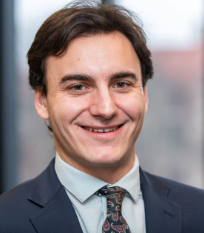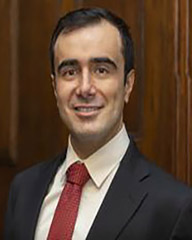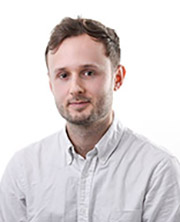Malyi Center Awards and Research Funding
Spring 2023 Malyi Research Awards
Early in the Spring quarter, the Malyi Center and its advisory board of scholars have chosen to fund four excellent thought-provoking projects from among numerous submissions.
Dr. Michael Albertus, Professor of Political Science at the University of Chicago, The Incan Road and Long-Term Economic Institutions in Peru.
In this project, the author's aim to advance research on the long-term economic and social institutions associated with the Inca Road across the Andean region in South America. The plan involves combining detailed and unique information on the road network obtained from Peru's Ministry of Culture with extensive historical data regarding human settlements during the Spanish conquest era. Additionally, geographic data concerning historical trade routes and economic activities will be integrated, alongside recent collaborative efforts by the author to compile the most comprehensive data ever on the evolution of Peru's economic and social institutions spanning the last century.
The research team intends to subject this proposition to rigorous analysis for the first time, utilizing new and exceptionally detailed data. This approach aims to shed light on the underlying reasons for institutional persistence, potentially offering insights into strategies for developing institutions characterized by greater integrity.
Kevin Angell, Ph.D. Candidate in Political Economy at the University of Chicago, Supreme Spender, or Controlled Chief? Presidential Ex Post Spending Control and the Separation of Powers *
In this project, the author explores the practical reality of the separation of power question by empirically examining presidential underspending, which refers to the ex-post failure to spend appropriated funds. The study encompasses all federal sub-agencies from 1921 to 2020, and it meticulously documents the prevalence of underspending across various presidents and legal changes, such as the Impoundment Control Act of 1974. Furthermore, the research aims to determine whether the president exercises such power differentially based on agency independence and presidential priorities. Given the centrality of checks and balances to sound institutions and democratic resilience, understanding the president's ability to act outside Congress is deemed critical in both scholarly and public debates concerning institutional design. This study delves into core issues of institutional integrity and accountability within the context of the American government.
Dr. Manuel Cabal, Teaching Fellow in the Social Sciences at the University of Chicago, Revolution and State Weakness: How Territorial Interests Undermined Education Reform in Post-Revolutionary Mexico.
The author contends that the centralization of policy regulation and implementation within states in the Global South varies across different regions within their territory. This variation can be attributed to the differing levels of state capacity during periods of centralization, which, in turn, are influenced by the political resources available to provincial politicians and their interactions with central institutions.
This research project seeks to make contributions in two significant areas. Firstly, it aims to assess the origins of "state weakness" in developing nations, providing insights into the underlying causes of disparities in state capacity. Secondly, it endeavors to enhance our comprehension of the politics associated with institutional reform and integrity, shedding light on the intricate dynamics between provincial politicians and central institutions in shaping policy regulation and implementation within these countries.
Gabriel Foy-Sutherland, Ph.D. Candidate in Political Science and Government at the University of Chicago, Inside the Red Box: How Parties and Candidates Evade Campaign Finance Law and Direct Independent Expenditures.
In Citizens United v. FEC, the Supreme Court ruled by a majority of 5-4 that existing restrictions on campaign spending were unconstitutional, paving the way for practically unlimited sums to be spent on U.S. elections. To limit opportunities for corruption, however, the Court required that spending by outside groups be made independently, Without coordination with any candidate or political party. To address this challenge, this project explores how candidates and parties innovated to evade these legal restrictions on coordination, providing the first comprehensive account of a widespread yet little-understood campaign practice known as “red-boxing.” Using a combination of text analysis, interview evidence, and experimental methods, I find evidence that “red- boxing” allows political actors to direct independent expenditures with almost perfect precision, as well as to insulate themselves from the harmful consequences of negative advertising. These findings have important implications for the functioning of current legal institutions and regulatory structures as well as the integrity and health of American democracy.



